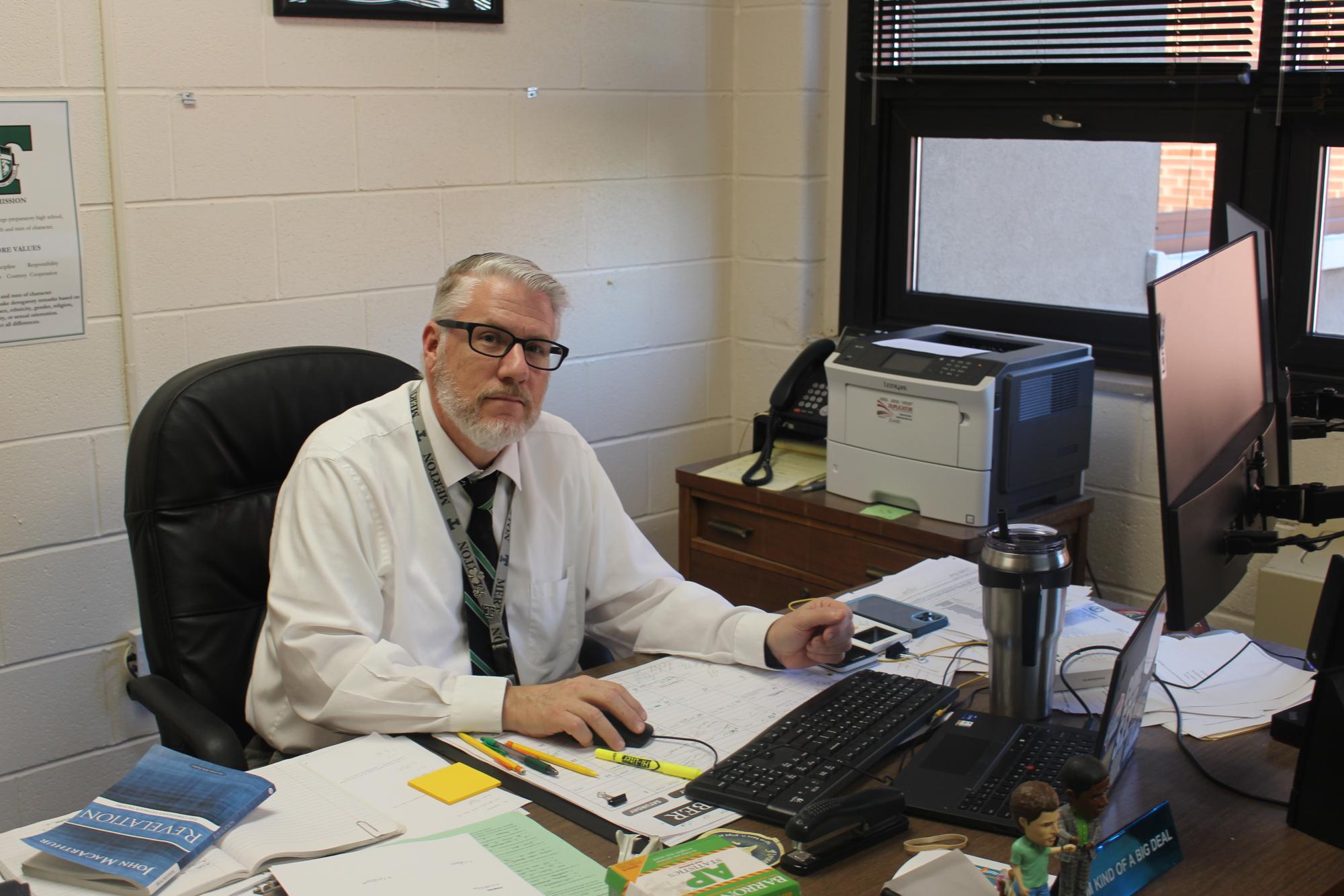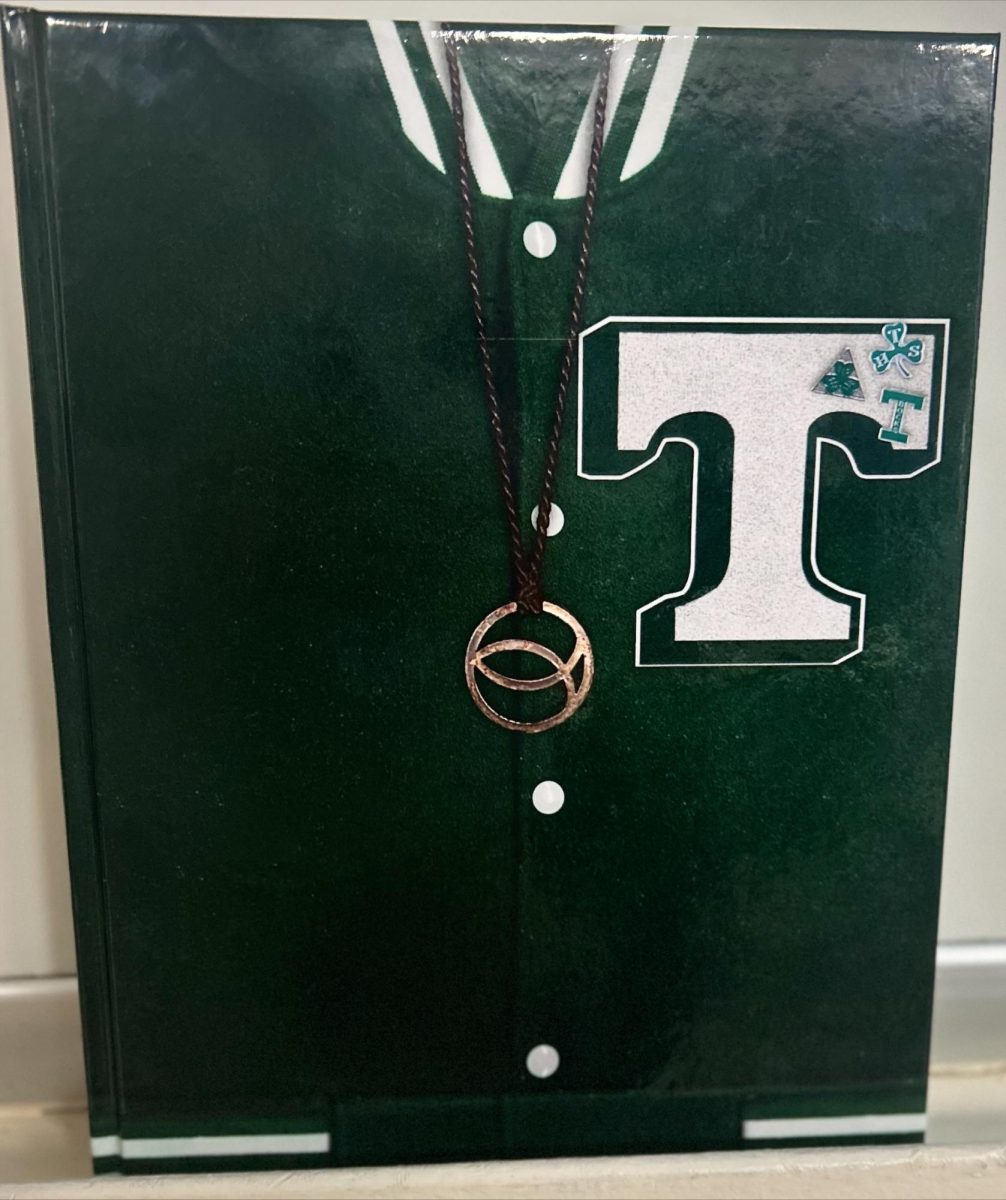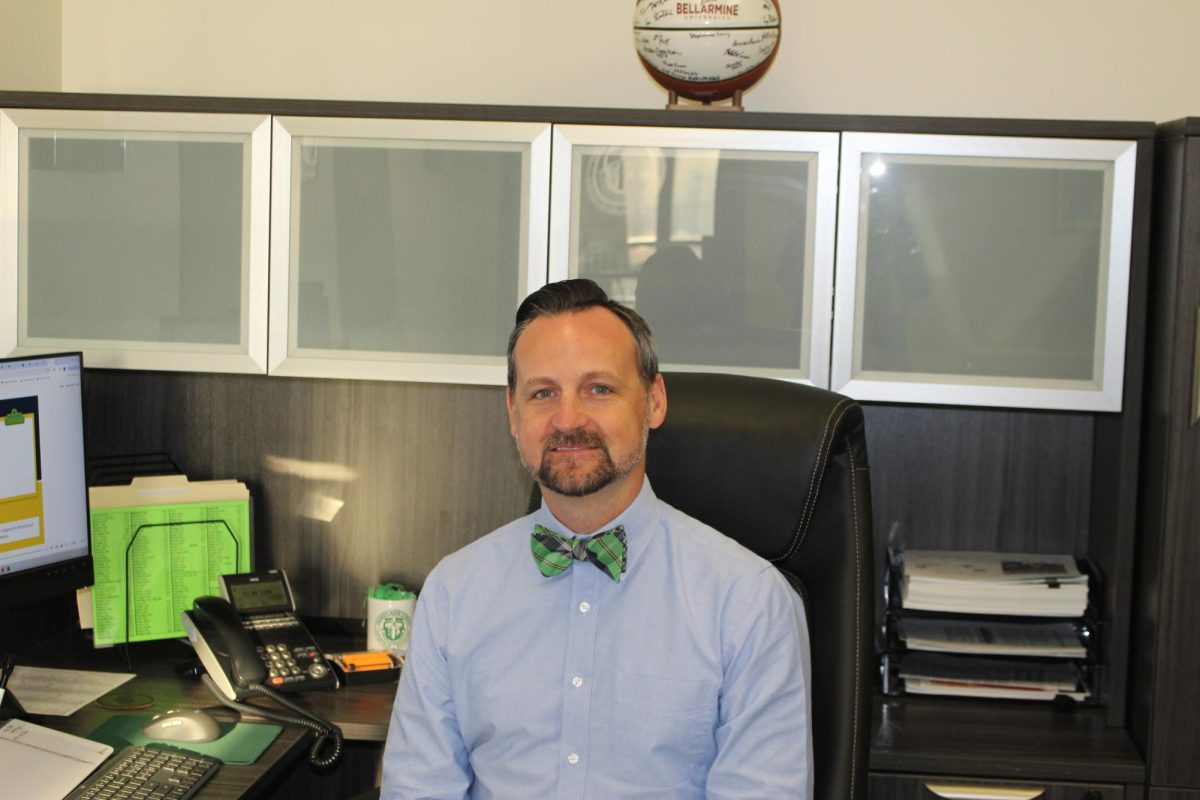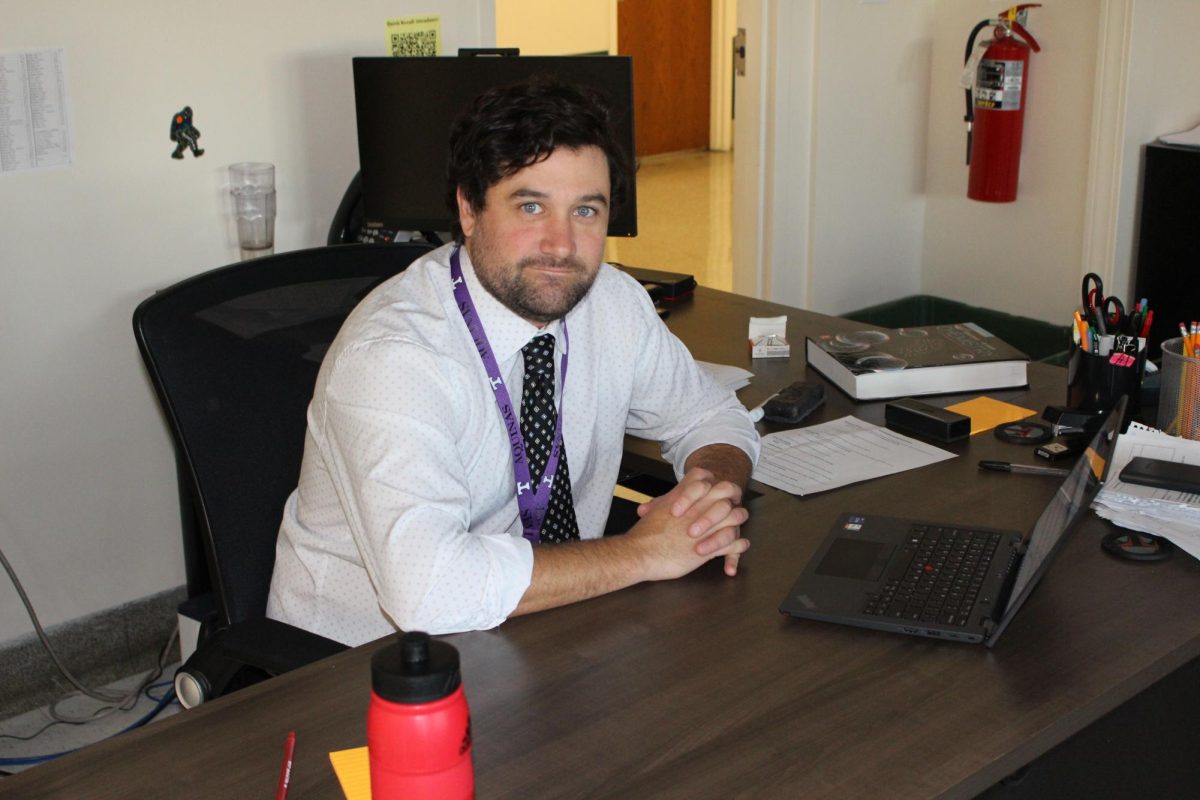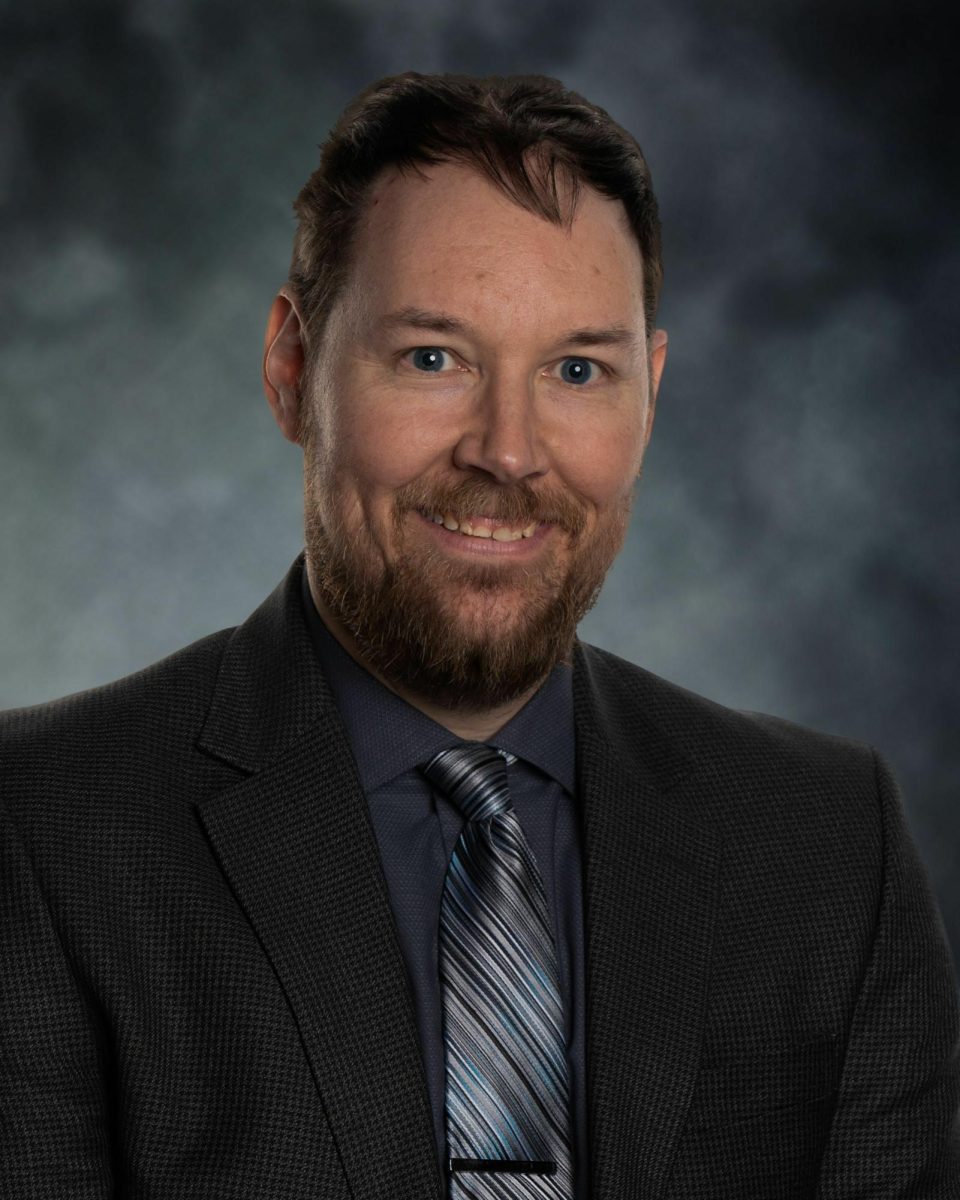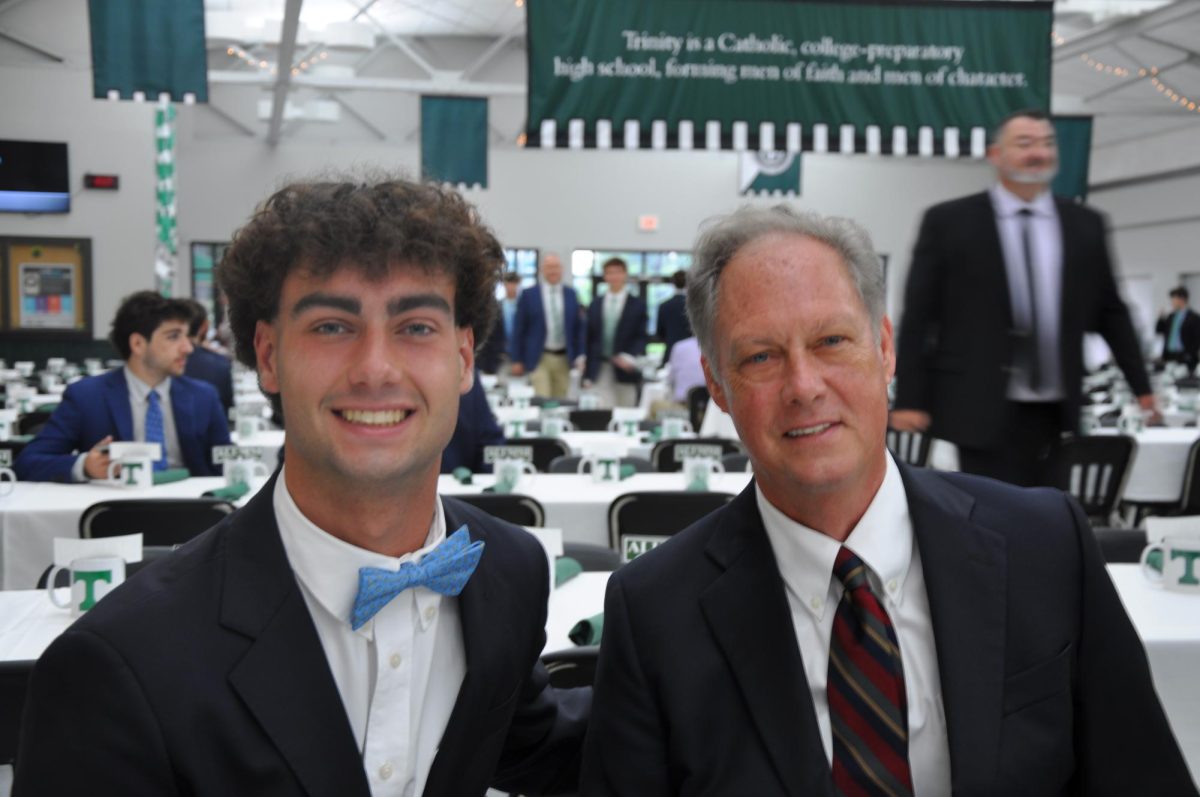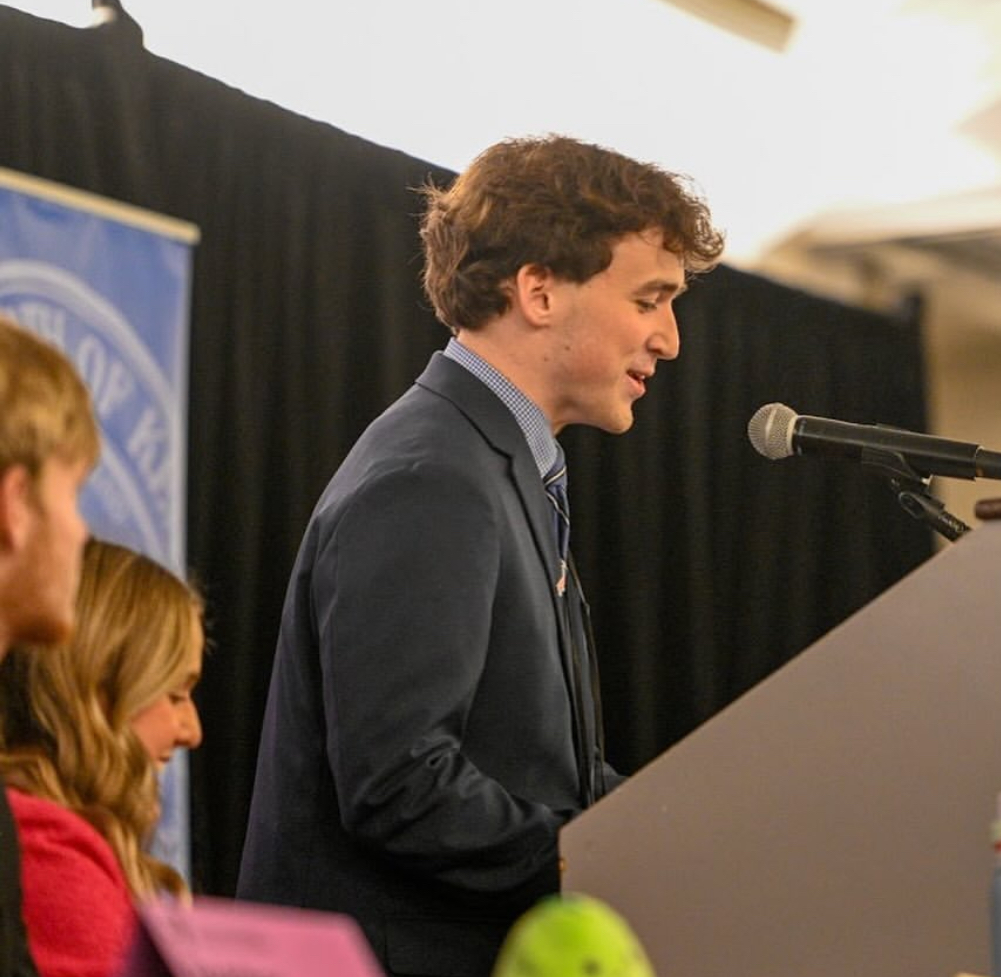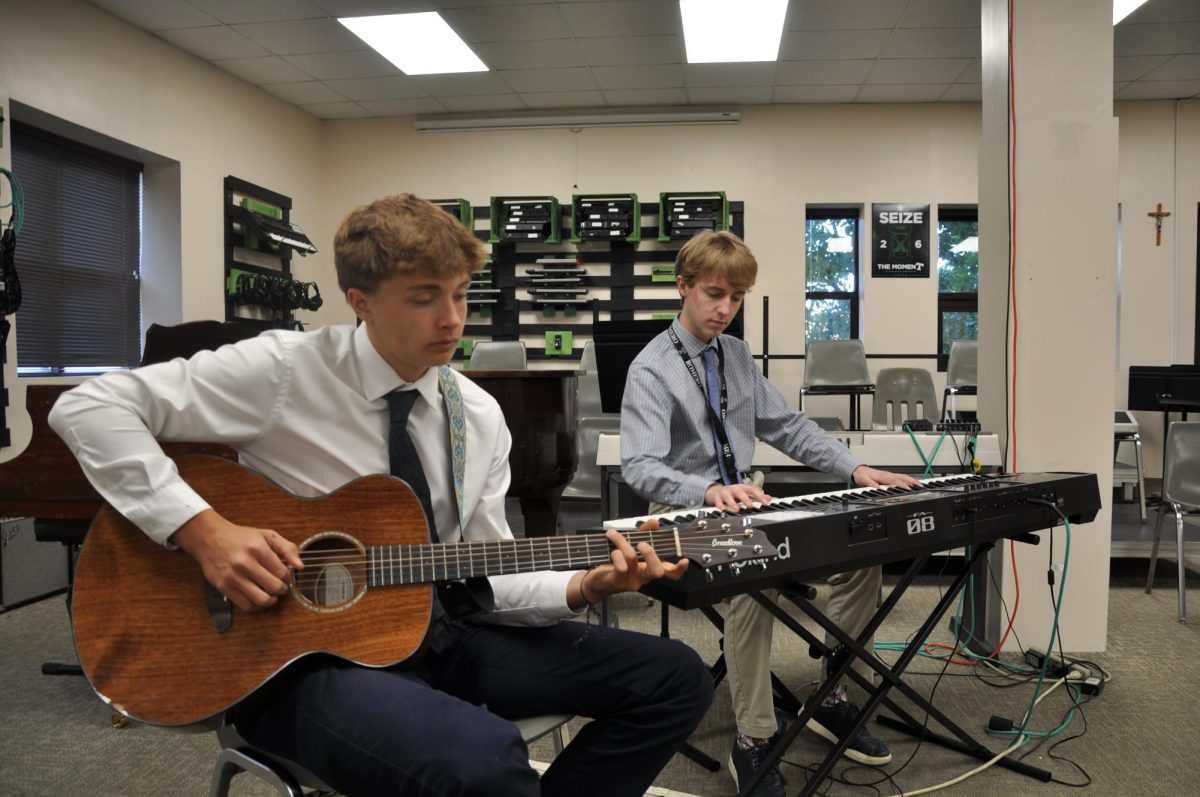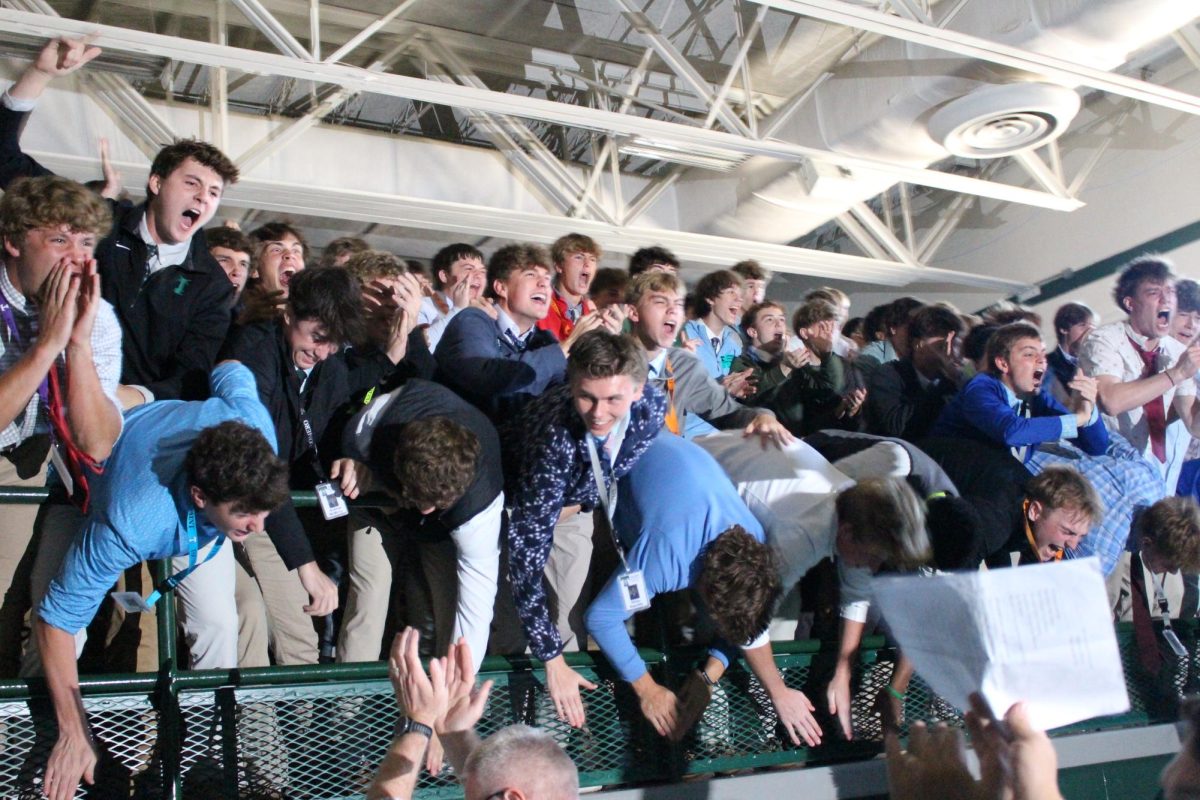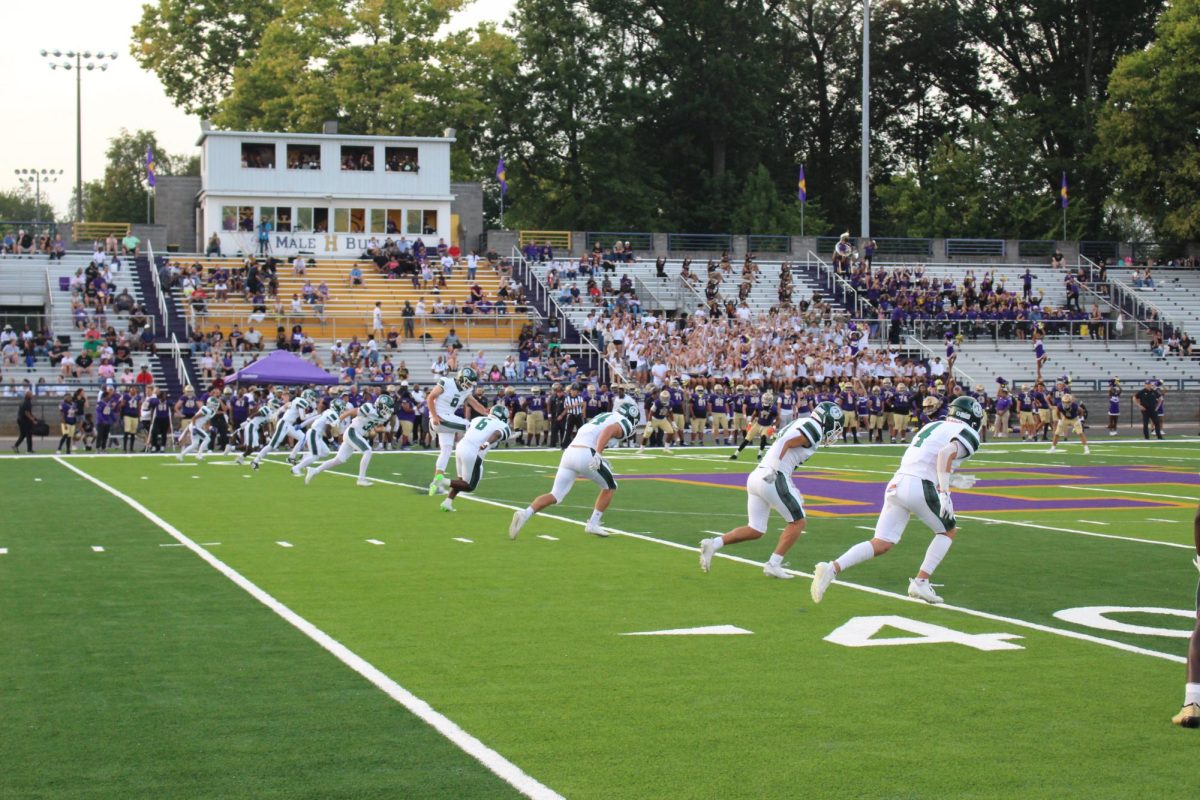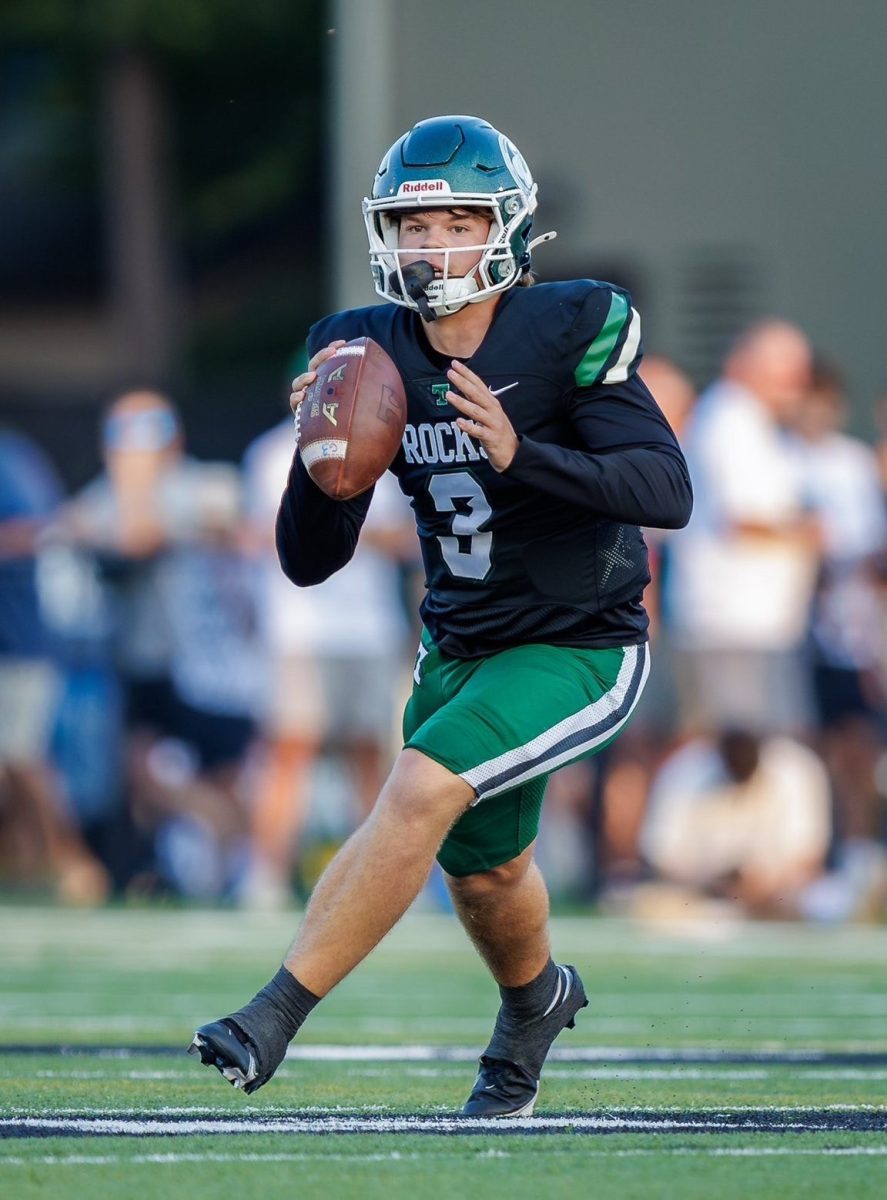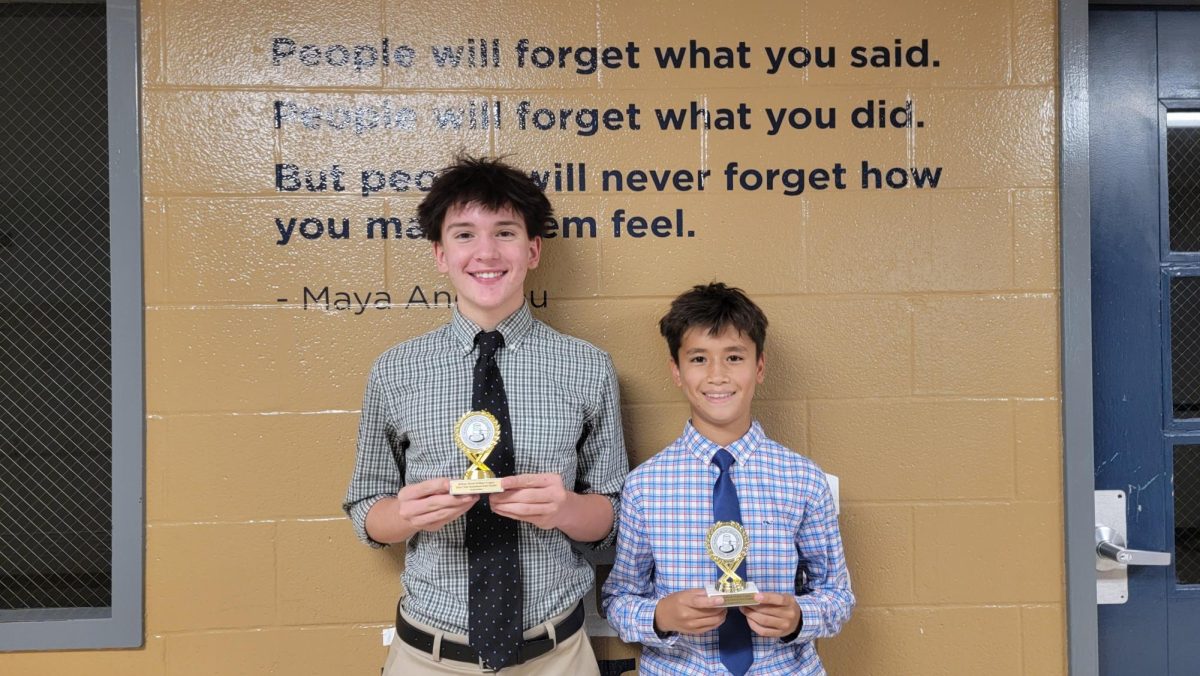Mr. Paul Diehl is a well-known teacher around Trinity. Diehl has worked here for nearly 30 years, currently serving as the director of the Advanced Program. A UC Berkeley alumnus, Diehl has been teaching high-level math since he started at Trinity. Now, he works hard teaching math and managing Governor’s Scholar and College Board activities at Trinity. For someone with such an extensive educational background, he surely had a rich history before arriving here. As the man who serves as our primary contact with the College Board and oversees AP test registration, he has a wealth of insight to offer. However, there’s much to learn about him. This made us ask the question: What’s the deal with Diehl?
Diehl was raised in Santa Cruz, “about 80 miles south of San Francisco.” He began his higher education by completing his undergraduate studies at UC Santa Barbara, earning a Bachelor of Arts degree in mathematics. He then went on to UC Berkeley to pursue his graduate degree in math education. When asked about his career path, Mr. Diehl said he always knew he would be a math teacher. His mom shared this confidence in his future, saying that from “second grade on, she knew that’s where I was going to end up.” By fourth grade, he was tutoring two of his classmates—Korean immigrants who were just beginning to learn English—in mathematics. Mr. Diehl reflected, “I was always good at mathematics, so it was just something that came easy to me.”
Diehl’s journey from California to Trinity has been long and not entirely centered around math and education. He left California at age 27 after meeting his wife, who is from the Louisville area. He moved to Indiana, where he still lives. Before teaching at Trinity, he worked at Holy Cross for four years. Diehl also taught night classes at Indiana University for eleven years while simultaneously working at Trinity during the day.
Outside of work, Diehl is a sports enthusiast with a variety of favorite teams. Since moving to Indiana and spending time in Louisville, he has become a fan of both IU and U of L. He has also been a lifelong San Francisco Giants supporter, having rooted for them for 40 years since growing up in the Bay Area. Another team he follows is the Cubs, a fandom he picked up thanks to his wife.
As the director of the Advanced Program, Mr. Diehl shared valuable insights into its workings. During our conversation, we discussed the rising cost of college tuition. Reflecting on his time in California, he noted that UC Berkeley was much more affordable when he attended. Today, as the university has grown, affordability has diminished, much like at schools such as Notre Dame, which offer limited financial aid. Diehl explained that smaller colleges often have more flexible admissions processes, allowing students to negotiate financial aid offers. For high-achieving students, this can open up unexpected opportunities to save on college costs.
When asked about maximizing scholarship opportunities, Diehl emphasized several key strategies: participating in meaningful extracurricular activities (being “involved”), striving to get into the Governor’s Scholar Program (GSP) if planning to attend college in-state, and achieving strong ACT scores. He noted that “nowadays, ACT scores are a big deal,” citing examples like the University of Alabama offering full scholarships to in-state students scoring above a 30. According to Diehl, the majority of scholarship money students receive comes from merit-based scholarships, which primarily consider grades and test scores.
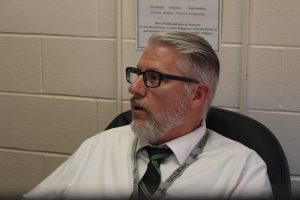
For students aiming to participate in GSP, Diehl’s primary advice was to “read the helpful hints packets and look at their examples.” He stressed the importance of thoroughly completing each section of the application: “Every section is read by a different person—put everything in every section. If something applies to all three sections, put it in all three sections.” He also recommended starting early, as the application process requires significant effort to compile a list of extracurricular activities. Finally, he reassured students that including information that might not count will not harm their application, so they should include as much as possible.
Mr. Diehl is a familiar face at Trinity, whether in the classroom or the lunchroom, but few know the full story behind him. With a long history of teaching mathematics and an educational journey rooted in California, he has much wisdom to share about college applications, the Governor’s Scholar Program, Trinity’s Advanced Program, and life.

